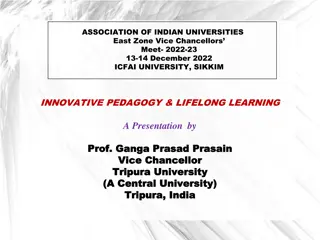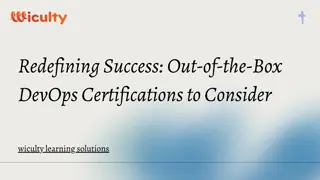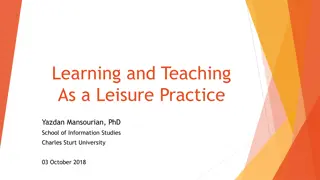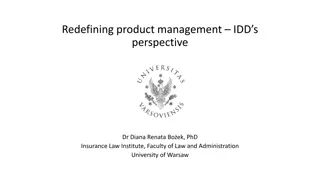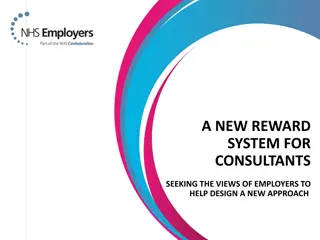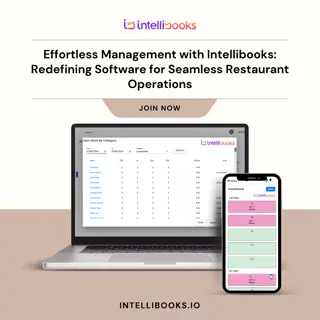
Leveraging Helicopter Parents to Support Students with Learning Disabilities
Explore the dynamics of helicopter parenting in supporting students with learning disabilities through perspectives, challenges, and leveraging opportunities. Research findings highlight the importance of family involvement and self-advocacy skills for successful transitions to post-secondary education.
Download Presentation

Please find below an Image/Link to download the presentation.
The content on the website is provided AS IS for your information and personal use only. It may not be sold, licensed, or shared on other websites without obtaining consent from the author. If you encounter any issues during the download, it is possible that the publisher has removed the file from their server.
You are allowed to download the files provided on this website for personal or commercial use, subject to the condition that they are used lawfully. All files are the property of their respective owners.
The content on the website is provided AS IS for your information and personal use only. It may not be sold, licensed, or shared on other websites without obtaining consent from the author.
E N D
Presentation Transcript
Redefining Resources Leveraging Helicopter Parents to Support Students with Learning Disabilities
Objectives Helicopter Parents Perspectives The New Landscape Data Leveraging and Scaffolding
Helicopter Parents Our Perspective A recent study showed that 38 percent of freshmen and 29 percent of seniors said their parents intervened on their behalves to solve problems either very often or sometimes. Descriptors include hovering, overprotective, enabling, annoying, tenacious, impatient, demanding, obnoxious Insistent Obtrusive when it comes to the Disability Office doing their job.
Helicopter Parents Their Perspective A child s primary advocate Responsible IEP The progression from shock to warrior & manager The anxious parent without a manual on fledging
The New Landscape IDEA vs ADA New social and academic challenges Student maturity and skill-set ?!?! You re Fired or Fear Induced
Research Shows Students with disabilities enroll in post-secondary schools at about half the rate of their non-disabled peers. 11% of college students report having a disability. Students with disabilities have an increased risk of attrition. Approximately 1/3 graduate in four-year colleges and 41% from two-year schools within 8 years.
Research Shows Successful students are initiators, advocates, and active participants who have mastered the soft skills. Self-determination is an indicator of college success, specifically self-advocacy skills. Family involvement was the key indicator of successful transition to college. Students indicate the importance of relationships with families who supported and instructed them to become advocates for their own educational needs as a major contributor to college success.
What can we do? Why battle? Why not leverage helicopter parents to lighten our workload and increase success by using them as Translators Gap Closers Reinforcer
How to Engage Define what you want to accomplish Set boundaries to eliminate? Establish an understanding of new responsibilities? Allow parents to be involved with the transition? Create literature to support your expectations Meet with parents to see where they are. Recognizance helicopter mission Low Altitude Helicopter Parents Guerilla Warfare Helicopter Parents
How to Engage Types of Literature (FAQ s or Handouts) ADA vs IDEA FERPA Skills for College Success How to Advocate Resource Quick Reference Guide Your New Role as a College Parent What to Expect for Disability Services
When to Engage Orientation - Share info about the office and expectations Initial Intake This can allow you to gauge their level of hovering If in guerilla mode, follow-up with student When communication gaps needs to be closed or expectations need to be reinforced Respond when engage Always reinforce the office s boundaries and expectations
Questions ??? aosborne@antiochcollege.edu







